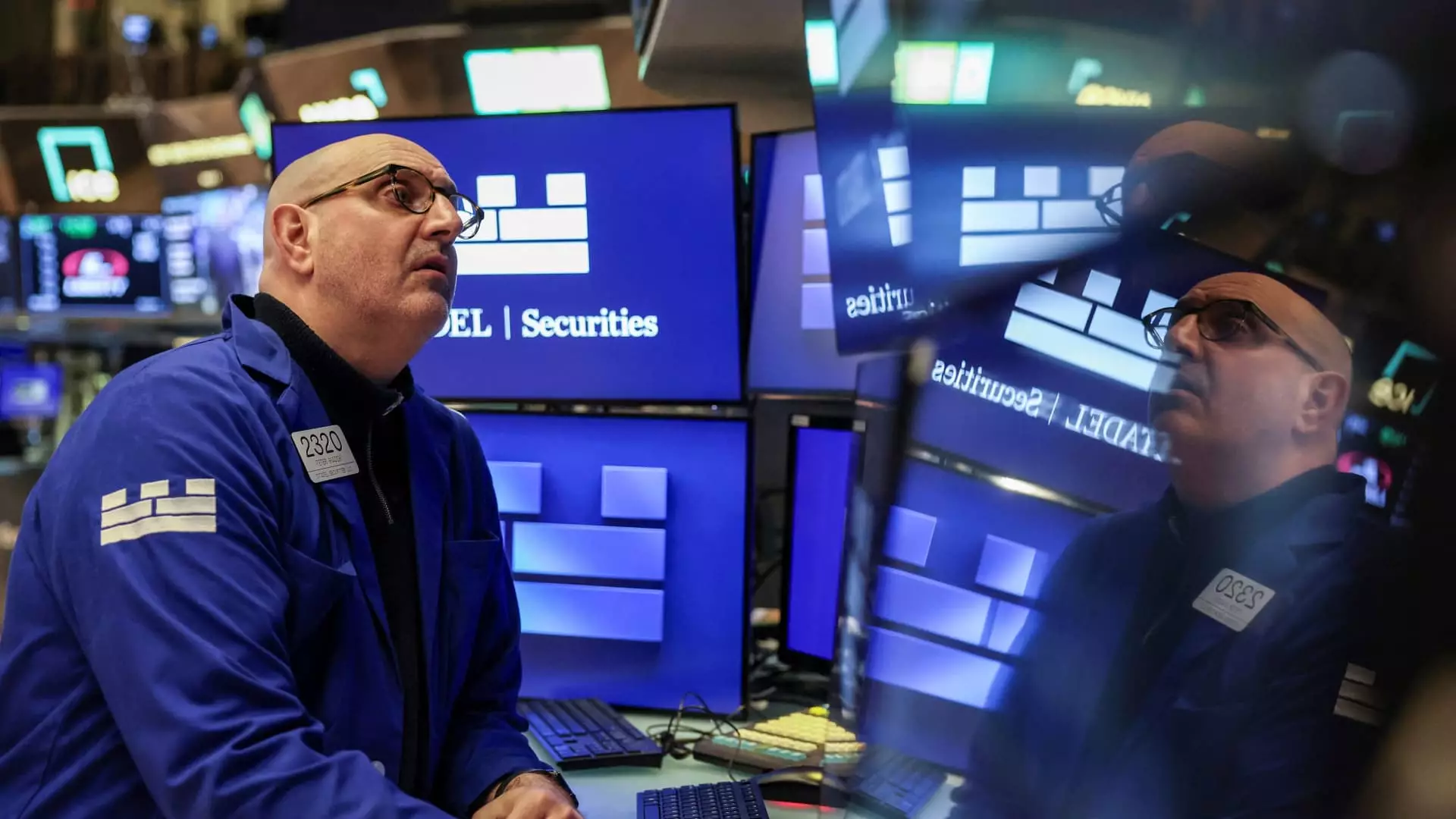March has proven to be a tumultuous month for Meta Platforms, parent company of Facebook. The stock has trended downwards, shedding more than 6% of its value this month alone. However, not all hope is lost; pockets of optimism remain for investors as signs of recovery begin to surface. Notably, the stock has had a recent uptick of 5%, suggesting that perhaps a downturn is met with promising rebounds. It’s an intriguing dynamic that raises questions about the overall health of not just Meta, but the broader social media and tech industries.
As I analyze the market outlook, I can’t help but notice the pattern of volatility among major tech companies—often colloquially dubbed the “Magnificent Seven.” Just like a roller coaster, the swings can be both thrilling and terrifying. However, amid the chaos, Chris Grisanti, chief market strategist at MAI Capital Management, proposes that investing in Meta at this juncture could be an astute decision. He emphasizes that while the company faces the challenge of escalating artificial intelligence (AI) investments, there’s enough underlying value and potential growth to make it an appealing prospect for savvy investors.
The Growth Potential of Earnings
One compelling argument in favor of Meta is its projected earnings growth. Grisanti points out that the company is expected to witness double-digit earnings growth over the next three to four years. When a stock is trading at a market multiple, it affords some measure of stability. The critical question, however, is whether investors possess the fortitude to weather the storm of AI expenditures that may not yield immediate results.
This leap into AI, while risky, is reflected in the stock price and can potentially be dialed back if it proves to be a miscalculation. Therein lies my criticism of conventional stock market wisdom, which often advocates for a wait-and-see approach. Meta is not merely resting on its laurels; rather, its investment in AI could lead to breakthroughs that significantly enhance user engagement and advertising revenues—two essential components of its business model. If history teaches us anything, it’s that the tech space can pivot from obscurity to market leader in a matter of months when innovators harness emerging technologies effectively.
Comparative Analysis with Homebuilders and Consumer Staples
In juxtaposition to Meta, other industries illustrate contrasting trajectories. Recruiting KB Home, Grisanti expresses skepticism about the homebuilding sector, stating that while interest rates may decline, the circumstances leading to such reductions—a slumping economy—are far from ideal for cyclical industries. This perspective serves as a sobering reminder that not all sectors will benefit equally during economic fluctuations. With real estate, the sensitivity to macroeconomic conditions complicates predictability.
Meanwhile, the consumer staples market is solid, yet presents a different kind of dilemma. Companies like McCormick have thrived amidst market uncertainty, enjoying robust stock performance; however, their growth may have peaked, leaving little room for upward mobility. What’s fascinating here is the interplay between market resilience and earnings projections. By standing near its all-time highs, McCormick may seem like a safe bet, yet it lacks the explosive growth potential that stocks like Meta promise at this moment.
What sets Meta apart from both KB Home and McCormick is its ability to innovate continuously—a characteristic vital for long-term sustainability in the tech industry. As markets grow increasingly volatile, investors should carefully assess where growth is likely to stem from, and for many, Meta presents an opportunity for revitalization.
Concluding Thoughts on the Future
Ultimately, the current landscape offers a choice: to invest in hard assets like homebuilders that may struggle through macroeconomic downturns or to embrace the volatility of tech stocks like Meta that, despite their risks, promise exciting growth trajectories. The advent of AI could unlock new frontiers for Meta that could mitigate current financial concerns. In a world increasingly driven by innovation, companies showing a willingness to adapt and lead with disruptive technologies will be the ones that shape our future.
At the core of this discourse lies the fundamental principle of investing: the willingness to take calculated risks for potentially substantial rewards. While conventional wisdom may caution against investing in downtrodden stocks, it’s crucial to differentiate between temporary challenges and long-term opportunities. Meta Platforms is at a crossroads, and those willing to heed its signs may find themselves reaping the benefits in due course.

